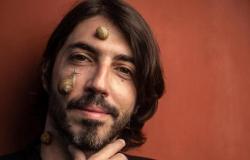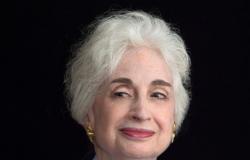
- The famed psychologist helped undermine the long-held theory in economics that humans are ‘rational actors’ when making decisions
- In 2002, he won the Nobel Prize in economics for his work, in 2013, he was awarded the Presidential Medal of Freedom by Barack Obama
Psychologist and Nobel Prize winner Daniel Kahneman died Wednesday at the age of 90.
The Israeli-born researcher became famous for his insights into how neurological biases impact decision making.
Together with Amos Tversky, his longtime collaborator, the pair undermined the long-held belief in the field of economics that humans are ‘rational actors’.
The research, described in Kahneman’s 2011 best seller ‘Thinking, Fast and Slow,’ illustrated how much of our decision making is shaped by ingrained mental quirks that can distort thoughts in irrational yet predictable ways.
Kahneman, born in Tel Aviv, served in the Israeli Army in the 1950s, where he observed a test the army used to identify future leaders.
The test continually failed to produce candidates who performed especially well at officer training school, but that reality did not convince the observers that their assessments, which seemed intuitively correct, were wrong.
‘It was the first cognitive illusion I discovered,’ he wrote, later coining the phrase ‘the illusion of validity.’
In ‘Thinking, Fast and Slow,’ I explained that ‘many people are overconfident, prone to place too much faith in their intuitions.
‘They apparently find cognitive effort at least mildly unpleasant and avoid it as much as possible.’
Kahneman’s death was confirmed by his partner, Barbara Tversky – the widow of his former research partner Amos.
Barbara told the Associated Press that the family is not disclosing Kahneman’s location or cause of death.
In addition to Barbara, his partner of four years, Kahneman is survived by two children from his first marriage, Michael Kahneman and Lenore Shoham; four stepchildren, Jessica, Daniel, Stephen and Deborah Treisman (children of his second wife Anne Treisman, to whom he was married until her death in 2018); and seven grandchildren.
In 2002, Kahneman received the Nobel Prize in economics for his groundbreaking work – virtually all of which he was done alongside Tversky – in what is now called the field of modern behavioral economics.
He won the prize ‘for having integrated insights from psychological research into economic science, especially concerning human judgment and decision-making under uncertainty.’
Tverksy, in all likelihood would have been jointly awarded the Nobel, had not died in 1996 of metastatic melanoma. Nobel Prizes are not delivered posthumously.
In his Nobel autobiography, Kahneman described the experience of working with Tversky as ‘magical.’
‘Amos was often described by people who knew him as the smartest person they knew. He was also very funny… and the result was that we could spend hours of solid work in continuous mirth.
‘Amos and I shared the wonder of together owning a goose that could lay golden eggs – a joint mind that was better than our separate minds,’ he wrote.
In 2013, Kahneman received the Presidential Medal of Freedom, the nation’s highest civilian honor, from President Barack Obama.
In a 2015 interview with The Guardian, Kahneman said: ‘I was very hardworking, but I didn’t expect to be a famous psychologist.
‘I’m quite capable of great enjoyment, and I’ve had a great life.’





